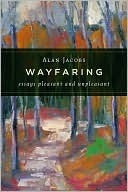More on this book
Kindle Notes & Highlights
The cognitive scientist Antonio Damasio has argued that our memories
are accompanied by what he calls "somatic markers" - neural encodings of the various physical conditions (sensory, hormonal) that existed in our bodies at the moment that the remembered event happened. So to recall an event is to retrieve the whole somatic context of that event: remembering a moment of fear, we shiver; remembering excitement, we blush.
This is a reminder of how little we control our own experiences, try though we might. And how little we control the paths we follow, whether neurally or in the great metaphorical sense of life as a pilgrimage - of a person as a viator, a wayfarer. I love the ...
This highlight has been truncated due to consecutive passage length restrictions.
An old phrase holds that to be a Christian is to be homo viator: the human being ...
This highlight has been truncated due to consecutive passage length restrictions.
To presume that we have made it to our destination and to despair of arriving are both, as Jurgen Moltmann has wisely said, ways of "canceling the wayfaring character of hope."
Hope comes from knowing that there is a way - and that we didn't make it.
On Borrowed Words: A Memoir of Language.)
As T. S. Eliot would later say, "Immature poets imitate; mature poets steal." Swift recommends theft.
(The passive-aggressive duplicity of much biblical commentary was seen with shocking clarity by Kierkegaard: "Christian scholarship is the Church's prodigious invention to defend itself against the Bible, to ensure that we can continue to be good Christians without the Bible coming too close.... We would be sunk if it were not for Christian scholarship! Praise be to everyone who works to consolidate the reputation of Christian scholarship, which helps to restrain the New Testament, this confounded book which
would, one, two, three, run us all down if it got loose.")
If we want merely to feel small, it is enough - though it is increasingly difficult - to find a place away from cities where we can observe the night sky and its stars.
The great blessing of Google is its uncanny skill in finding what you're looking for; the curse is that it so rarely finds any of those lovely odd things you're not looking for. For that pleasure, it seems, we need books.
The uniqueness of human beings, in the created order, is that we live simultaneously in nature (the realm of involuntary and repetitive acts) and history (the realm in which we make
choices, and experience and reflect upon the consequences of those choices). Other living things - plants and other animals - live in nature only; angels, perhaps, only in history. To have this double inheritance is our challenge,
our pain, but also our glory.
We lived in an old ramshackle house which had the single virtue of a large L-shaped porch, and in the frequent afternoon thunderstorms of my Alabama childhood I would park myself in a dry spot on the porch and watch, almost literally mesmerized, the tall trees' dialogue with the wind. I never tired of this spectacle, nor did I ever miss an opportunity to encounter it again. The enormous creatures really did seem almost
to talk to one another, and perhaps to me. Just a few weeks ago, when powerful southerly winds rushed into my part of Illinois, I was walking across the wide front lawn of the
...more
oak could easily have dropped a branch big enough to kill me.
The Tree, by Colin Tudge,
I would be inclined to give The Green Bible only to those who have passed a detailed examination on the book of Job, about the end of which G. K. Chesterton wisely said, "The riddles
of God are more satisfying than the solutions of man."
These are terms coined by the philosopher Charles Taylor. "The porous self is vulnerable," he writes, "to spirits, demons, cosmic forces" - and, I would add, to unpredictable natural forces and political authorities who know little or nothing of the rule of law. `And along with this go certain fears that can grip it in certain circumstances. The buffered self has been taken out of the world of this kind of fear."
...more


